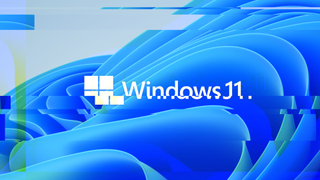Windows 11 issues mean it's not worth upgrading yet, say experts
Wait and see

Windows 11 is out now – and while it may be tempting to install it straight away, industry experts, such as analysts Gartner, are advising a more cautious approach.
As The Register reports, Gartner research vice president Stephen Kleynhans refers to Windows 11 as an “overdue facelift,” which doesn’t offer enough new features or changes. “All of these capabilities could have been released as just another feature update for Windows 10.”
- Windows 11: the pros and cons for businesses
- We show you how to download Windows 11
- Here's how to personalize Windows 11
In a rather pointed comment, Kleynhans suggests that by calling this new release Windows 11, Microsoft “has created a marketing opportunity,” rather than releasing a substantial new operating system.
Because Windows 11 doesn’t bring any substantial changes, Kleynhans recommends that individuals – and especially businesses – hold off rushing into upgrading to the new operating system.
Slowly but surely
Kleynhans suggests that businesses should instead devise a timeline to evaluate Windows 11, then migrate to Windows 11 over the next year.
Another option, Kleynhans suggests, is to run pilot tests amongst employees. “Enterprises should run small pilots in 2022 using the initial Windows 11 21H2 release, to develop familiarity with the new UX and understand potential user and support impact.”
While Windows 11 isn’t a major departure from Windows 10, there are some differences, especially in the user interface, that could cause confusion. By slowly testing out Windows 11 with a few employees, you should be able to identify any potential issues (and sort them) before rolling it out to your entire workforce.
Are you a pro? Subscribe to our newsletter
Sign up to the TechRadar Pro newsletter to get all the top news, opinion, features and guidance your business needs to succeed!
This is a much more sensible approach than just putting everyone on Windows 11 at the same time, then trying to fix all the problems at once.
We spoke to Kleynhans as well, and he told us that Windows 11’s user interface is likely to evolve over time based on user feedback. The company has done this before, and while any changes to Windows 11’s look and behavior “won’t be as extreme as the rework that happened between Windows 8 and Windows 8.1... it is likely there will be a few noticeable changes.”
By moving your employees onto Windows 11 too quickly, Kleynhans suggests, they may have to learn how to use Windows 11’s initial user interface, and then have to get used to any subsequent changes, “potentially experiencing two learning curves.”
While Kleynhans told us that “the risks of early adoption are small and likely manageable,” he believes that “most organizations don’t have a particularly compelling reason to rush this transition.” In the coming days, we’ll be going into more depth about the challenges to businesses that Kleynhans told us about.

Analysis: Wise advice
Taking a cautious approach to upgrading to Windows 11 is in our view the right way to do things. In our Windows 11 review, we praise the operating system for a lot of things, but there’s no denying that Windows 11 sometimes feels like an incremental update over Windows 10.
These smaller changes mean we’re unlikely to see major problems when upgrading from Windows 10 to Windows 11 – certainly nothing like the driver issues and app compatibility problems that plagued the switch from Windows XP to Windows Vista, for example.
However, there have been Windows 11 problems already, so upgrading to the operating system so close to launch is always going to bring a degree of risk that your PC may encounter issues. For businesses with lots of computers that are mission critical, these risks are far more pronounced.
Rob Metcalf, Head of Cloud and Infrastructure at ATech Cloud, spoke to us about how “Windows 11 brings in many innovations and lessons learned from Windows 10,” and that “as a result of these changes, many businesses will be forced to implement solutions to upgrade existing hardware firmware, most of which goes untouched, to allow the operating system to even install.”
Metcalf is referring to the requirement for PCs to support TPM 2.0, a security feature that is causing some people with modern PCs to find they are unable to install Windows 11.
“With the requirement for secure boot and TPM 2.0 no longer being just an option but instead being mandatory,” Metcalf told us, “companies will need solutions for making their devices compatible with the new operating system. The good news is most devices built in the last five years should support it, however many have out of date firmware.”
Scott Riley, director of Cloud Nexus and an expert in Microsoft 365 and Azure, explained to us that he recommend home users to upgrade to Windows 11, as "the fresh clean interface is a really nice overhaul, and the majority of what's happening in the background is very much Windows 10."
However, he told us that he "would encourage businesses to take a staged approach to rolling out Windows 11... We need to consider that not everyone in the business is on the same tech-savvy level. While there aren't a huge amount of changes, it's enough that some users might feel a bit uncomfortable in having it dropped on them." This is broadly in line with what Kleynhans suggests.
"The good news," Riley explains, "is that there's no pressure to upgrade. Windows 10 is supported through to October 2025, giving businesses plenty of time to plan the upgrade."
Considering the limited new features that Windows 11 brings, then, there’s not much to be gained from upgrading just yet. However, as with Windows 10, Microsoft will continue to update and evolve Windows 11 over the coming months and years.
This should help fix most of the early problems, while adding more features that will make upgrading to Windows 11 much more worthwhile – and this applies to both businesses and home users. When it comes to upgrading to Windows 11, it’s definitely worth holding off for now.
- These are the best laptops of 2021

Matt is TechRadar's Managing Editor for Core Tech, looking after computing and mobile technology. Having written for a number of publications such as PC Plus, PC Format, T3 and Linux Format, there's no aspect of technology that Matt isn't passionate about, especially computing and PC gaming. Ever since he got an Amiga A500+ for Christmas in 1991, he's loved using (and playing on) computers, and will talk endlessly about how The Secret of Monkey Island is the best game ever made.
Most Popular

